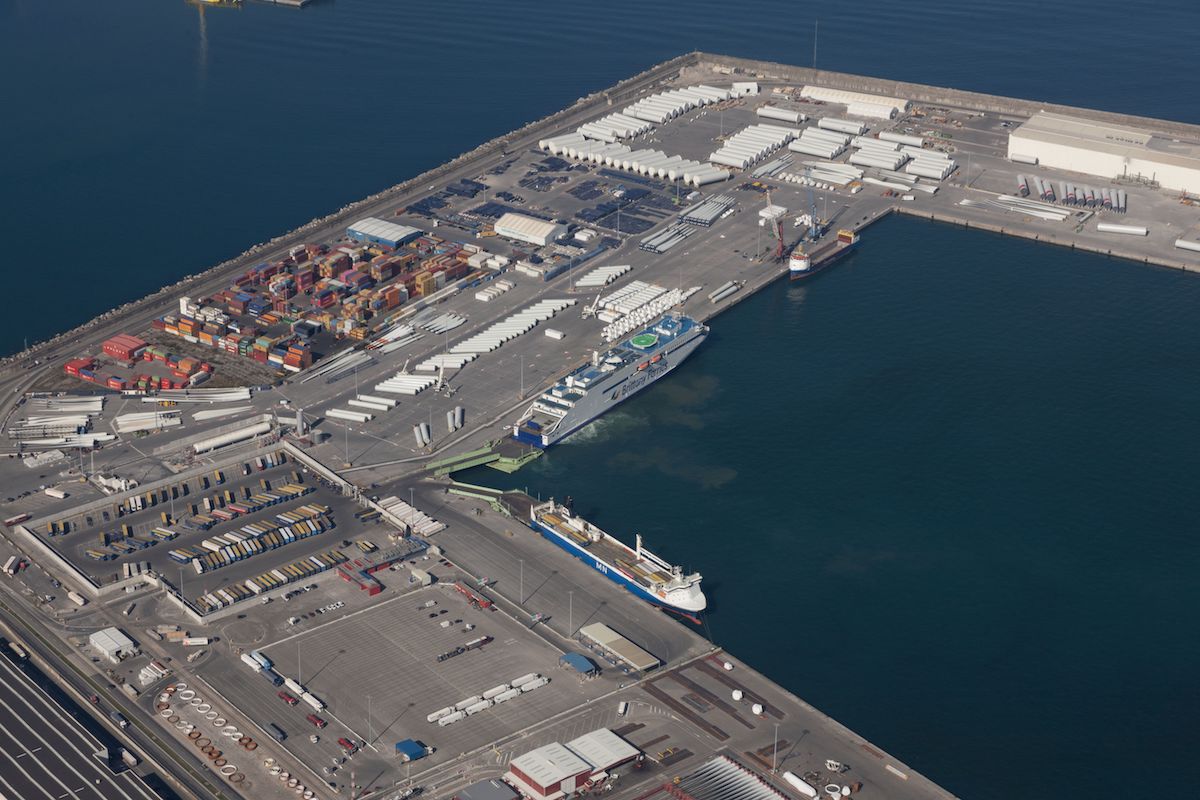Three shipping routes between ports in the UK and Spain, both freight and cruise, have been identified as potential green corridors to help decarbonise shipping. One of these routes has been Bilbao-UK, and the other two depart from Santander and A Coruña.
These routes were identified at a seminar organised by the British Embassy in Spain and the Port Authority of Bilbao, together with the Global Maritime Forum. The event was attended by Sarah Cowley, Deputy Head of Mission in the British Embassy in Madrid; Andima Ormaetxe, Director of Operations, Commerce and Logistics of the Port Authority of Bilbao; and Aitor Arzuaga, CEO of Alba Emission Free Energy. British authorities such as Alexandra Beaumont, Head of UK Shore (Office of the UK Government dedicated to making maritime greener), and James Lovett, Head of Innovation at Innovate UK (UK National Innovation Agency), were also in Bilbao to talk about the progress made by the United Kingdom in this field.
After a number of working sessions and exploratory surveys, the British Embassy, the Port Authority of Bilbao and the Global Maritime Forum, an international not-for-profit foundation working to boost the potential of the global maritime industry, have, as a preliminary step, identified a series of routes. These routes will later be developed on a joint basis by public and private institutions. Developing such routes has the potential to stimulate the growth of new value chains in Spain and the UK, including new zero-emission shipping technologies and services, which could then be replicated to other routes.
For Andima Ormaetxe, Director of Operations, Commerce and Logistics of the Port Authority of Bilbao, “the development of green and digital shipping corridors is a priority for the Port of Bilbao. The Port of Bilbao has been following a strategy of sustainability and leading actions in this area since 2005, and these initiatives will now be boosted with the investment in the electrification of the port docks and the Basque Hydrogen Corridor. The status of the Port of Bilbao as the leader in shipping services to the Atlantic Arc, and to the United Kingdom in particular, has been further strengthened with the introduction of more environmentally-friendly vessels in the last two years. The decarbonisation of these corridors will have a great impact due to the volume of freight and passengers they carry and the huge potential that exists in moving from road to sea. For all these reasons, we believe in the viability of decarbonising these shipping routes.” “Furthermore”, he adds, “this forum organised by the Global Maritime Forum and the UK Government is a key tool to analyse and promote, among all stakeholders, the measures and investments required to move towards increasingly sustainable transport.”
Reducing greenhouse gases
While shipping is one of the most energy-efficient modes of transport, it is also a growing source of greenhouse gas emissions. These emissions are projected to increase from 90% to 130% (compared to 2008 emission levels) by 2050.

As a result, countries meeting at the International Maritime Organization (IMO) adopted in 2018 an initial strategy to reduce greenhouse gas emissions caused by international shipping, and to eliminate them as soon as possible in the course of this century. An initial strategy was agreed to reduce gas emissions by at least 50% by 2050 compared to 2008 levels.
Subsequently and along these lines, the United Kingdom announced the launch of the Clydebank Declaration at the COP26 summit in Glasgow in November 2021. The statement is designed to complement the work of the International Maritime Organisation to make zero-emission transport possible. The signatory countries of the Clydebank Declaration, including Spain, expressed their ambition to support the establishment of green shipping corridors, i.e. zero-emission maritime routes between two or more ports. Since then, the British Embassy in Madrid has been working closely with the Global Maritime Forum to identify and analyse international and UK-Spanish routes to enable the decarbonisation of maritime transport.
The seminar held in the Port of Bilbao has served as a preparation for the next GMF report to be released in April. In the meantime, last year’s report is available for consultation on the Global Maritime Forum website.
Green Corridors are specific shipping routes where the feasibility of zero-emission shipping is catalysed by a combination of public and private actions. Several key elements must be in place to establish a green corridor: collaboration between value chains, a viable fuel pathway, customer demand for green shipping, and favourable policies and regulations.

 Port access
Port access